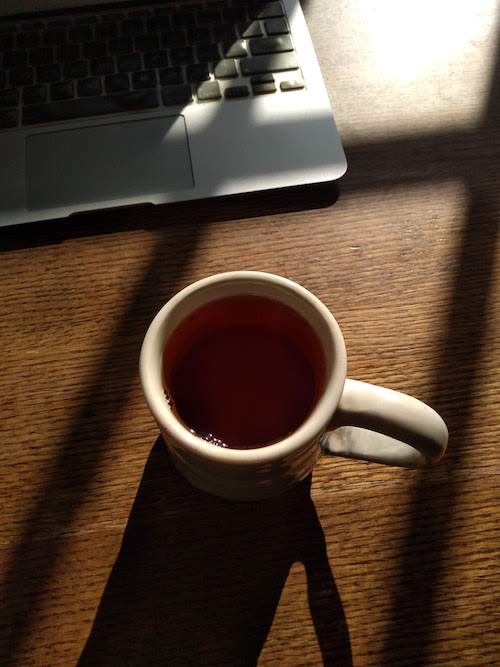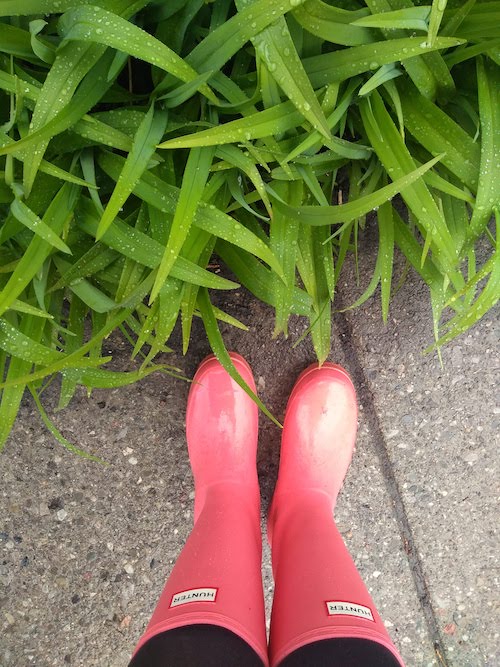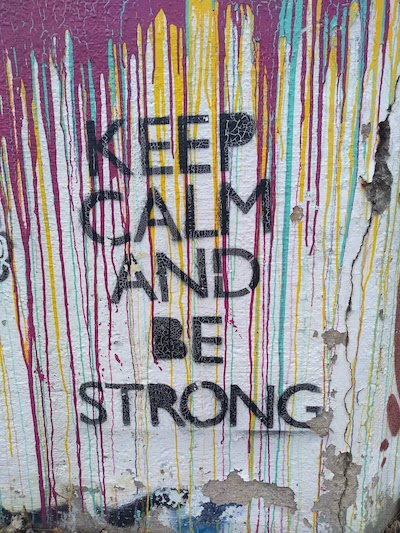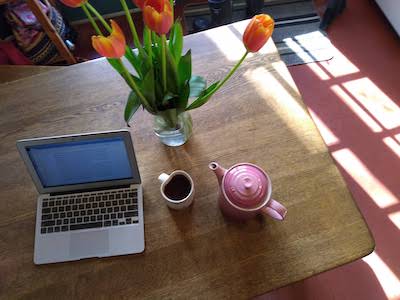How to Promote Your Novel Online

The most effective way to promote your novel is to assume that nobody cares about your novel, which, more often than not, will turn out to be the case. The death of the author was unfounded, my friends, and indeed, she is alive and well, and expected to visit book clubs and publish first-person narratives delineating her past traumas for the reward of pennies (if she’s lucky) and exposure. Whether this exposure will result in book sales, however, is anyone’s guess.
But still, an author is expected to have a platform, which makes it easier to market her book, for readers to connect—and I’m not being snarky about this. The opportunity to connect with readers is a really important one and can be inspiring to writers as much as readers. And I know there was indeed a time when an author didn’t have to do anything but write her books, and then exit her garret precisely twice a year to be feted as a literary genius, but that was never actually really true, and also that author was a man.
Now when I talk about a platform, I mean a blog, or any of the social media channels that basically function as micro-blogs (which is why everyone who says that blogs don’t matter in 2020 is absolutely wrong), or a combination thereof. And it really helps if the author is not using this platform solely to promote her work, if she finds it natural and enjoyable to engage with these platforms even when she has nothing to sell. There is a direct correlation between what you put into your online platform and what you can expect to get out of it. Also: if you have made a point of blogging and sharing the details of your ordinary life, it just makes sense when that life begins to include the experience of publishing and promoting a book and you don’t even need to feel uncomfortable about it.
But first: you don’t HAVE to do any of this. If blogging and social media micro-blogging make you squeamish, then forget about it. Promoting your novel this way is not going to be effective if you hate it, because people will be able to tell you hate it, and also you’ll stop doing it in a week or two. If you don’t have an online presence at all and you’re looking for a book deal, you’re unlikely to build one significant enough to make a difference in whether or not your book gets signed anyway. I’ve heard conversations about publishers not really caring about anyone’s platform, unless they’ve got at least 100,000 followers, which at first glance is kind of depressing, but then it isn’t, because it just means that the rest of us don’t even have to worry about that anymore.
If you’re not sure about blogging, however, it still makes sense to have a blog on your website, a place to add news and events. If you don’t like the word “blog” (and I don’t blame you), then you can call it something different, and the advantage of having this kind of space on your website is that it helps with your SEO rankings if your site is updated semi-regularly and makes that website a more interesting place.
There are other reasons to blog or micro-blog though, than just for the purposes of promoting your novel—and the great thing about blogging for other reasons is that your blog will thereby be more appealing than one existing for the purposes of self-promotion AND you’ll even end up promoting your novel indirectly.
First, your blog can serve your writing practice. I certainly credit nearly twenty years of blogging with making me a better writer, and also for teaching me the way that small parts can add up to a big project. You can use your blog also as a workbook, a place to challenge your writing chops. There will be a small but devoted audience for that kind of blogging, as there always will be for the kind of interesting blog that exists for its own sake and not to court the attention of others.
Your blog can also serve you as a reader, a place to write about the books you’re reading. Should you include critical reviews? That’s up to you. You can write about new releases, and obscure books, and the kind of reading that informed who you are today as a reader and a writer both, and there will be a small but devoted audience for this kind of blogging too, because you’re giving them something. But the opportunity to engage more deeply with your reading is something that you can get out of the whole thing too, beyond the opportunity to promote your own work. Writing about other writers is also an opportunity to build connections to literary communities—although this is always more easily accomplished when it’s not your explicit purpose.
Another way to use your blog is to write about something that fascinates you, as opposed to something you anticipate potential readers will be into. This means that even if no one is reading, at least you will be having a good time exploring the ideas you’re writing about—and maybe these are ideas connected with your book, extraneous research that didn’t make it into your narrative, trivia surrounding your subject, the stuff you just can’t shut up about. And the perk of all this is that you writing about the stuff you just can’t shut up about is—more than any other kind of calculation—going to result in posts that convey real passion, the kind of thing that people really do want to read.
Remember though that blogs are marginal, peripheral. So are books, for that matter, unless you happen to be John Grisham or Danielle Steele. And so using a blog to promote a book is kind of like using a spaghetti noodle to hit a baseball out of the park. Don’t count on a home-run, I mean. But there are other ways to measure success, your own satisfaction and enjoyment of the exercise among them. All this to say that if you don’t have a ton of readers, it doesn’t mean you’re doing blogging wrong. Really, obscurity is kind of inherent to the form. It means you’re doing it right.
But even in obscurity, you can build up a sizeable collection of “followers,” which I’ve always found a pretty distasteful name for what I’d prefer to call “community.” People who care about you and your ideas, and ideally the feeling is mutual. People who inspire you and make you think, and recommend good books and share links to articles that change your mind, and make it stronger. People who learn from you just as you learn from them, and when your book comes out, they will be the ones (not related to you) who are likely to buy it,
What Should I Blog About?

If you’re asking the question, “What should I blog about?” and you don’t have a single answer, then maybe that’s a sign that don’t really need to be blogging. That while the idea of blog sounds like a good thing, perhaps you have some exploring still to do before you get down to the practice of blogging, which is also the practice of noticing things to blog about. Maybe you have to master that first before you get to the next step.
Sometimes though, when somebody asks, “What should I blog about?,” what they’re actually saying is, “Who actually cares about anything I have to say anyway?” And that’s a different kind of question. Your blog is the world through your eyes/your I, and the only person who has that singular perspective is you. What an incredible thing, to be able to see things that nobody else does, to chart a path that’s just your own, and then to share that journey. Even if your journey looks a lot like other journeys—you get up in the morning, you go for walks, you notice what’s blooming in the garden, you take note of the shape of the clouds in the sky. Ordinary, all of it, but it’s yours. Nobody else can tell that story, which is reason enough for you to do so.
“What should I blog about?” can also be a question of what parts of the story to tell though—can you really put the garden, the clouds, the morning light, all of it, into the very same blog? And some people will tell you that you can’t. That what you need is a gardening blog, and a cloud-watching blog, and another blog about the light. But this kind of compartmentalization is not only thoroughly unrealistic, it’s also unsustainable. I can promise you that having more than one blog is likely to lead to abandoned blogs, because it’s work enough to keep a single blog fed and watered, let alone multiples. But also depriving your blog of variety, of space to grow and wander in terms of approach, is also to make your blog less interesting, to reduce the number of people likely to be curious about what you’re putting out there—and to limit your possibilities in terms of what you’re writing about. And why would you do that?
The answer to the question of, “What should I blog about?” will be different for everybody, but it lies along the lines of whatever happens to be in front of you, whatever catches your eye and holds your attention, and makes your wonder enough for that attention to be sustained for a handful of paragraphs. (If you’re genuinely interested in what you’re writing about, than it makes it more likely that somebody else will want to read it…)
It’s also a question that only you can answer.
And if you can’t answer it? (Or at least, if you can’t yet?)
The only solution is to start blogging and write your way.
5 Tips for Blogging Through a Crisis

Even in the strangest days, I insist that blogging still matters and so, to that end, here are my five tips to help you keep going when things are tough.
- Remember that you don’t actually have to—keep blogging through a crisis, I mean. Maybe you’re grappling with the demands of full-time work and childcare, or you’re busy worrying about a loved one on the front lines, or you’re too preoccupied by refreshing news headlines over and over in search of better ones. If you’re heart just isn’t in it right now, don’t beat yourself up. There will be other different seasons ahead—and blogging should never be a chore.
- Let your vision for your blog change. This is good advice no matter what’s going on in the world. A blog needs room to grow and space to wander, and maybe your plans are going to have to be different to accommodate what’s going on in your head these days. That’s okay. It keeps things interesting, and that’s a good thing.
- Don’t be afraid to not have the answers. Also, a bit of evergreen advice, but my goodness, uncertainty sure is having a moment, huh? For the blogger, who is brave enough to write about what she doesn’t know and what she doesn’t understand, however, this is an opportunity because you’ve never had so much material. And if my experience is anything to go on, writing about it is going to make you feel better.
- Take it easy. Life is hard enough right now—don’t be afraid of blogging shortcuts. If you don’t feel like writing, post a photo of a spring scene from your walk each day. Post a few lines from a book you’re reading. A list of your favourite sourdough hacks, or five things that are taking your mind off everything. Whatever strikes your fancy—just keep going!
- Be a booster. What’s the point, you might ask? Who cares what I have to say anyway? I’ve heard that one before… But I would argue that the internet (and the world) needs you more than ever, especially if you’re spreading the word about great stuff that other people are doing these days. Are you blogging about new books, or great local businesses, or homegrown fashion brands, or the best places in town to get takeout? As a blogger, do your part to support the kind of world we want to see on the other side of all this.
This post was first published last week in my Blog School newsletter. Please sign up for it if you’d like to receive similar content monthly direct to your inbox—and you’ll also receive a free download of blogging prompts.
Stop Scrolling

I don’t have the experience that so many people describe of social media, how scrolling through your feed just makes you feel like your own experience is inadequate, because you don’t go on fancy vacations and have never had the means to hire a decorator, and have never once had your photo taken in a field of sunflowers.
And yes indeed, part of the reason I don’t feel those feelings of inadequacy is because I have a pretty nice life, with health and happiness—even if I’ve never had the means to hire a decorator and while we once did indeed visit a lavender field, all the plants had been stunted by a late season frost.
But that’s only part of it. A huge reason why I tend to have a positive experience on social media is because, like many others, I don’t use these platforms passively, but instead I engage with them in an active way. I post photos, tell stories, reach out to friends, solicit feedback, share jokes, and heartaches, frustrations, insights and ideas. Each of my posts, no matter the platform, a kind of message in a bottle—except that it’s different from a bottle for the likelihood I’m going to get some kind of response.
And it’s that response I’m looking for, actually, every time I log in to Twitter, Facebook or Instagram—the first thing I do is check my notifications. (Not unrelated: turning OFF all notification alerts, so that I ACTIVELY have to seek them out, has improved my quality of life. So does not having Twitter or Facebook on my phone.)
So that what I get from social media (when I seek it out. Being deliberate is important) is actually community, genuine connections, friendship and support. And yes, I also want to see photos of your vacation, but it’s easier to not feel depressed when you’re in Hawaii and I’m in Toronto and it’s February when I don’t feel like I’m utterly alone in the world and also when I can scroll back and see a photo of the pretty mug of hot chocolate I posted yesterday. (Instagram is also about the beauty of small things and quiet moments. This matters to me a lot.)
I first started thinking about this the other week while I was listening to this radio interview with Mark Kingwell (“Canadian philosopher Mark Kingwell examines the idea of boredom and our digital devices”) about the dangers of passive scrolling. Kingwell says, “We’re not participants; we’re lab rats and the advertisers are gathering our data, and they’re feeding it back to us in forms like triangulation of desire. They are treating us as resources and they don’t care about you as an individual. They care about your data and about your preferences. So yes I do think that all kind of feeds back.”
But when you do participate, you complicate things with your humanness. (When you participate by blogging on your own website, you complicate things even more, and challenge the idea that the web is a corporate space wholly navigable by algorithm, and this is no small thing!) The opposite of passive is active, and the opposite of scrolling is creation. Yes, for some the answer might be to disconnect from social media and online life altogether, but for most of us something more nuanced is required. (Jenny Odell writes about this splendidly in How to Do Nothing: Resisting the Attention Economy.) The answer is first to be more conscious of how we use our attention online. The second answer to aspire to have a rich and engaged life off the internet. And the third is to be an active participant in online culture. Stop scrolling, and make stuff.
Because you’re Somebody. In fact, we all are.
And even better? I really believe that being an active participant in online culture can improve other parts of your experience IRL. (This is what I mean when, in my blogging course, I talk about how having a blog can make your life richer.) Yes, much of online experience is aspirational, but I think it’s weird that we wholly dismiss aspiration as a bad thing. How can it be, really, if these aspirations are ones it’s possible to realize?
There are so many books I’ve read, and places I’ve visited, cakes I’ve baked, and things I have seen that have been so incredible to experience—things I never would have known about if I hadn’t seen them on Instagram first.
I also remember in the months after my first child was born, when I was (though this was only evident to me in retrospect) deeply unhappy and the online images I was presented with of “perfect motherhood” didn’t actually make me feel less-than, but made me better, that a life beyond “lying on the floor half-naked and weeping” was actually possible. It was important for me to believe that it was, that one day I’d get dressed again.
So many times, the things I’ve seen online have kicked my ass (in the best way) and forced me to get out there in the world.
Because the world is interesting, but also because, otherwise I’d have nothing to blog about, to write about, to post about. And yes, there was that vastly overpriced soft-serve place near my house whose ice cream cones looked fabulous in my Insta-feed, but didn’t taste any better than an ice cream a quarter of the price that came off a truck—but that place actually went out of business. And it’s really not all as superficial as that.
What would happen if you went out of your way to find a flower to photograph tomorrow?
